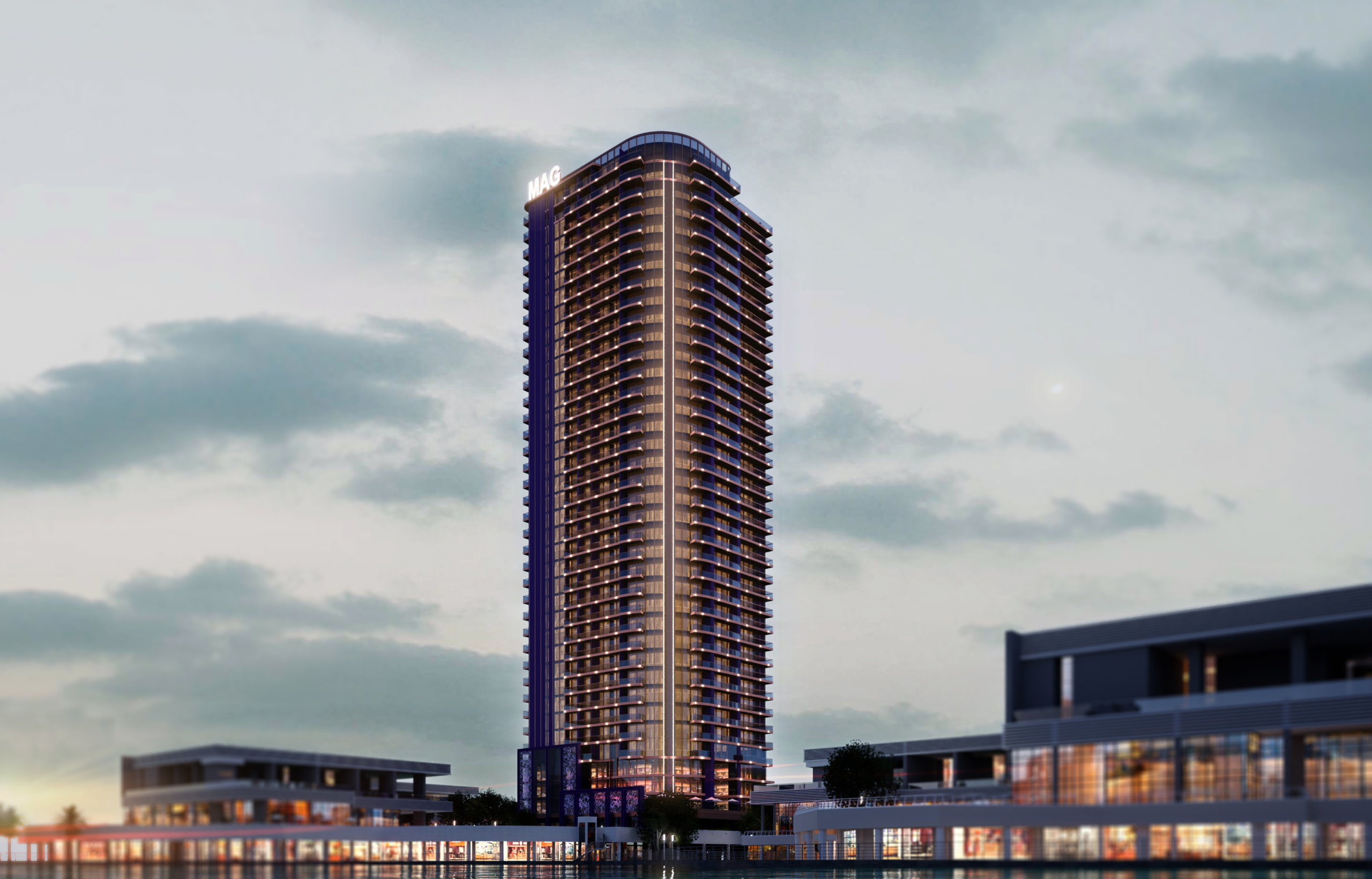Renting a Property in Dubai: The Complete Tenant’s Guide
Renting a home in Dubai is an exciting yet detailed process, whether you’re a first-time renter or relocating to the city. With its diverse neighborhoods, world-class amenities, and thriving economy, Dubai offers a wide array of housing options. However, navigating through the rental market can be complex. Understanding the legal requirements, rental costs, and your rights as a tenant can help you make an informed decision and ensure a smooth rental experience.
In this comprehensive guide, we’ll cover every step of the renting process, from choosing the right property to understanding your rights and the lease termination process, whether you want to leave or if the landlord decides to terminate the lease.
1. Understand the Rental Market and Set Expectations
The first step when renting a property in Dubai is understanding the city’s rental market. Dubai’s real estate market offers a wide variety of properties, but rental prices can vary greatly depending on several factors:
- Location: Areas like Downtown Dubai, Dubai Marina, and Jumeirah tend to have higher rents due to their prime location, proximity to business districts, luxury offerings, and amenities.
- Property Type: Studio apartments, 1-bedroom flats, and villas come at different price points, with larger properties commanding higher rents.
- Neighborhood: More established areas or those closer to business hubs generally have higher rent costs compared to suburban areas or developments further from the city center.
- Amenities: Properties with additional amenities like swimming pools, gyms, security, and concierge services tend to be priced higher.
Key Considerations:
- Set your budget: Factor in not just rent but also security deposits, maintenance fees, and utility costs (DEWA, internet, etc.).
- Understand amenities: Whether you need parking, a gym, or a pool, these factors can influence rent. Clarify which amenities are included before making a decision.
By understanding these aspects, you can set realistic expectations and determine what suits your needs and budget.
2. Choose Your Area, Budget, and Property Requirements
Choosing the right area and property type is crucial to finding the ideal home. Consider the following:
- Area Preferences:
- Luxury Areas: Downtown Dubai, Palm Jumeirah, Dubai Marina.
- Suburban Areas: Al Barsha, Dubai Hills Estate, Jumeirah Village Circle.
- Budget-friendly Areas: International City, Silicon Oasis, Discovery Gardens.
- Budget: Establish your monthly rent budget, but also account for additional costs such as:
- Security Deposit: Typically 5% of the annual rent.
- Maintenance Fees: Some properties charge service fees for maintaining common areas.
- Utilities: Water, electricity, and internet are often separate costs and may not be included in the rent.
- Property Type: Decide on the size and type of property:
- Studio Apartments: Ideal for singles or small budgets.
- 1-2 Bedroom Apartments: Great for small families or those needing more space.
- Villas and Townhouses: Suitable for larger families or those seeking more privacy and space.
3. Contact a Real Estate Agent or Broker
After setting your preferences, it’s time to reach out to a real estate agent or broker to help you find the perfect property. Kingdom by Mag has over 40 expert sales agents, each specializing in different areas of Dubai, making it easier to match your needs with available properties.
Why Work with an Agent?
- Access to Listings: Agents have access to exclusive listings that might not be publicly advertised.
- Expert Negotiation: Agents can negotiate the rent, terms, and number of cheques on your behalf.
- Legal Support: Real estate agents can guide you through legal requirements, ensuring your rights are protected and that all documents are properly prepared.
4. View Properties and Assess Suitability
Once your agent has identified a selection of properties, it’s time to view them. During these viewings, make sure to:
- Inspect the Property: Look for any maintenance issues or damages.
- Assess Amenities: Check if the property has the amenities you need (e.g., pool, gym, parking).
- Evaluate Neighborhood: Walk around the area to gauge the neighborhood’s safety, convenience, and available amenities like public transport, supermarkets, and schools.
5. Understand the Tenancy Contract
Once you’ve found a suitable property, carefully review the tenancy contract. This legally binding document will outline all terms of your rental agreement.
Key Contract Terms:
- Rent Amount and Payment Terms:
- Number of Cheques: The number of cheques you’ll use to pay rent can impact the total cost. Landlords may charge higher rent if you prefer to pay in 12 cheques instead of one lump sum or quarterly payments.
- Security Deposit: Typically 5% of the annual rent.
- Duration of Lease: Ensure the lease term is clear, along with the renewal conditions.
- Maintenance Responsibilities: Confirm whether the landlord or tenant is responsible for specific repairs and maintenance.
- Notice Period: Ensure the contract specifies the notice period for both parties if either wants to end the lease early (usually 90 days).
Additional Fees:
- Utility Charges: Make sure to ask whether utilities (DEWA, internet, etc.) are included in the rent or need to be paid separately.
- Parking: Check if parking is provided, and whether it’s included in the rent or requires an extra fee.
6. Pay Rent and Security Deposit
Once the contract is signed, you will need to make the following payments:
- Security Deposit: Paid upfront, refundable at the end of the lease, provided no damage is caused.
- Rent Payment: As per the number of cheques specified in the contract (1, 4, or 12 cheques).
Ensure you keep receipts for these payments to protect yourself in case of disputes later on.
7. Ejari Registration
Ejari registration is mandatory for all tenancy contracts in Dubai. This registration ensures that your rental agreement is officially recognized and legally binding. Your agent or landlord will help you complete this process.
8. Arrange Utilities and Internet
After signing the lease, you’ll need to set up essential services:
- DEWA: For water and electricity connections.
- Internet and Telecom: Contact a provider for internet, TV, and phone services.
9. Conduct a Move-In Inspection
Before moving in, conduct a detailed move-in inspection with the landlord or property manager. Document the property’s condition and note any pre-existing damage to avoid disputes when moving out.
10. Pay Rent on Time
To maintain a good relationship with your landlord, ensure you pay your rent on time each month. Failure to do so may lead to penalties or even eviction.
11. Maintain Open Communication with Your Landlord
Good communication with your landlord is essential. Report any maintenance issues promptly and keep the landlord informed of any changes. Clear communication will help you avoid misunderstandings.
12. How to Terminate Your Lease (Tenant’s Perspective)
If you need to terminate your lease early, here are the steps to follow:
1. Review the Lease Agreement:
- Check the notice period required for early termination. Most leases in Dubai require 90 days’ notice before vacating the property.
2. Provide Written Notice:
- Submit a formal written notice to your landlord, stating your intention to vacate the property. This should be done at least 90 days before you plan to leave.
3. Pay Early Termination Fees:
- Some contracts include a penalty for early termination. Review the terms to understand if any penalties apply.
4. Move-Out Inspection:
- Conduct a move-out inspection with the landlord to assess the property’s condition. Document any damages or issues.
5. Receive Your Security Deposit:
- After the inspection, the landlord will return your security deposit (minus any deductions for damages, if applicable).
13. What If the Landlord Wants to Terminate the Lease?
If the landlord wants to terminate your lease, they must follow specific legal procedures:
Valid Grounds for Termination:
- Renovations: If the property needs extensive repairs that can’t be done while you’re living there.
- Property Sale: If the landlord plans to sell the property.
- Personal Use: If the landlord or their first-degree relatives require the property.
Notice Period:
- The landlord must provide 12 months’ notice if they intend to terminate the lease. This notice must be provided in writing and include a valid reason for eviction.
Compensation:
- If the landlord evicts you without valid grounds or fails to provide the required notice, they may need to compensate you for the inconvenience, including paying for relocation costs.
Conclusion
Renting a property in Dubai involves several key steps, including choosing the right area, setting your budget, signing the tenancy contract, and understanding your rights. Additionally, knowing the process of terminating the lease—whether you want to leave or if the landlord wants to evict you—is essential to ensure that you handle the situation legally and smoothly.
By understanding the costs associated with renting (such as property size, the number of cheques, and amenities), the lease agreement, and the termination process, you can navigate the rental market with confidence.
At Kingdom by Mag, our team of 40+ expert agents is here to guide you through every step of the rental process, ensuring a seamless and hassle-free experience. Whether you’re looking for your perfect home or need assistance with terminating your lease, we’re here to help.
Reach out to Kingdom by MAG for expert advice on MBL Signature and other Dubai real estate gems.
Phone: +971 58 555 9090
Email: info@kingdombymag.ae
Contact us today to start your rental journey in Dubai!






